Will Accepting Financial Help Impact My Eligibility for Social Security Disability?
Receiving financial assistance may affect people’s eligibility to receive disability benefits. The Social Security Administration employs two disability programs that pay benefits to those with disabling injuries or medical conditions – Social Security Disability Insurance and Supplemental Security Income. When a serious illness or injury leaves people disabled and unable to work, they may struggle to make ends meet. Approval for disability benefits through Social Security may offer some necessary relief; however, it often takes substantial time to get approved. In order to help support themselves and their families, those applying for benefits or already receiving SSDI or SSI benefits may receive monetary gifts or seek financial help from family members, friends or other public assistance programs.
The Difference Between SSDI and SSI
Both operated by the SSA and for the benefit of those with disabling medical conditions or injuries that prevent them from working, significant differences separate the SSDI and SSI programs. Earned through the tax withholdings from recipients’ paychecks, the SSDI program pays benefits to those with qualifying medical impairments. The SSI program, on the other hand, is needs-based and provides supplementary income to people with limited earnings and assets.
The Effect of Financial Help on Social Security Disability Claim Eligibility
With few exceptions, receiving financial assistance has no effect on people’s eligibility for SSDI benefits. To qualify for benefits through the SSDI program, people must have qualifying disabilities and their earned income cannot exceed the Substantial Gainful Activity amount. The monthly SGA amount for 2020 is $1,260 for non-blind applicants and $2,110 for blind applicants. Earning more than the monthly limit may result in a denial, reduction or termination of benefits.
Only certain types of income count toward the SSDI limit. The types of earnings that may qualify as gainful activity for benefit eligibility purposes include work performed for profit or pay, a type of work typically undertaken for profit or pay, and work performed with the purpose of receiving profit or pay. Provided the financial assistance they receive from family or friends does not fit into one of these categories, such help may bear no effect on their benefit eligibility. Should a family member or friend give them money for performing some type of service, however, the financial help could fall into an earned income category.
The Effect of Financial Aid on SSI Eligibility
The SSI program considers more sources of income in determining benefit eligibility, which may include help from family, friends and other sources. The countable income considered for SSI benefits includes the following:
- Any income received without performing work to earn, such as cash gifts from family, unemployment benefits, pensions, and interest income
- Any income received for work performed, including wages, some royalties and self-employment net earnings
- Any income brought in by a spouse in the applicant’s household
- Food, shelter or other such needs received for free or at a reduced expense
When applying for SSI benefits, people’s countable income cannot exceed $783 per month for an individual or $1,175 per month for a couple. Further, applicants cannot have more than $2,000 in resources as an individual or $3,000 as a couple. Since SSI assistance is reserved for only those with a substantial need, earning more than the monthly limit or having significant resources may make people ineligible for SSI benefits.
Even if receiving financial assistance does not put them over the income limit and disqualify them from obtaining SSI benefits, it may affect the amount of their monthly benefits. In determining recipients’ benefits, Social Security subtracts their non-countable income from their total income to determine their countable income. The SSA then subtracts the countable income amount from the SSI federal benefit rate to determine people’s benefit amounts. Therefore, certain financial help may increase people’s countable income, and thus, reduce their SSI awards.
The Effect of Workers’ Comp and Other Disability Benefits
Receiving financial assistance from other public sources may affect applicants’ disability benefits eligibility. Depending on the amount of these benefits, receiving workers’ compensation or other public disability benefits paid by local, state or federal government agencies may reduce people’s Social Security benefits. When receiving SSA disability and other public disability benefits, such as civil service disability benefits, state or local government disability-based retirement benefits, and state temporary disability benefits, the total amount of disability benefits they receive cannot exceed 80% of their average current earnings prior to becoming disabled. In such cases, people’s Social Security benefits may be reduced by the difference between the total benefits they receive and 80% of their average current earnings.
While receiving financial assistance through other public benefit programs may affect people’s SSDI or SSI benefits eligibility, payments received from private sources typically do not. Under most circumstances, the disability payments received from insurance benefits or private pensions have no bearing on people’s eligibility for Social Security disability.



 Click-to-call
Click-to-call
 Live Chat
Live Chat